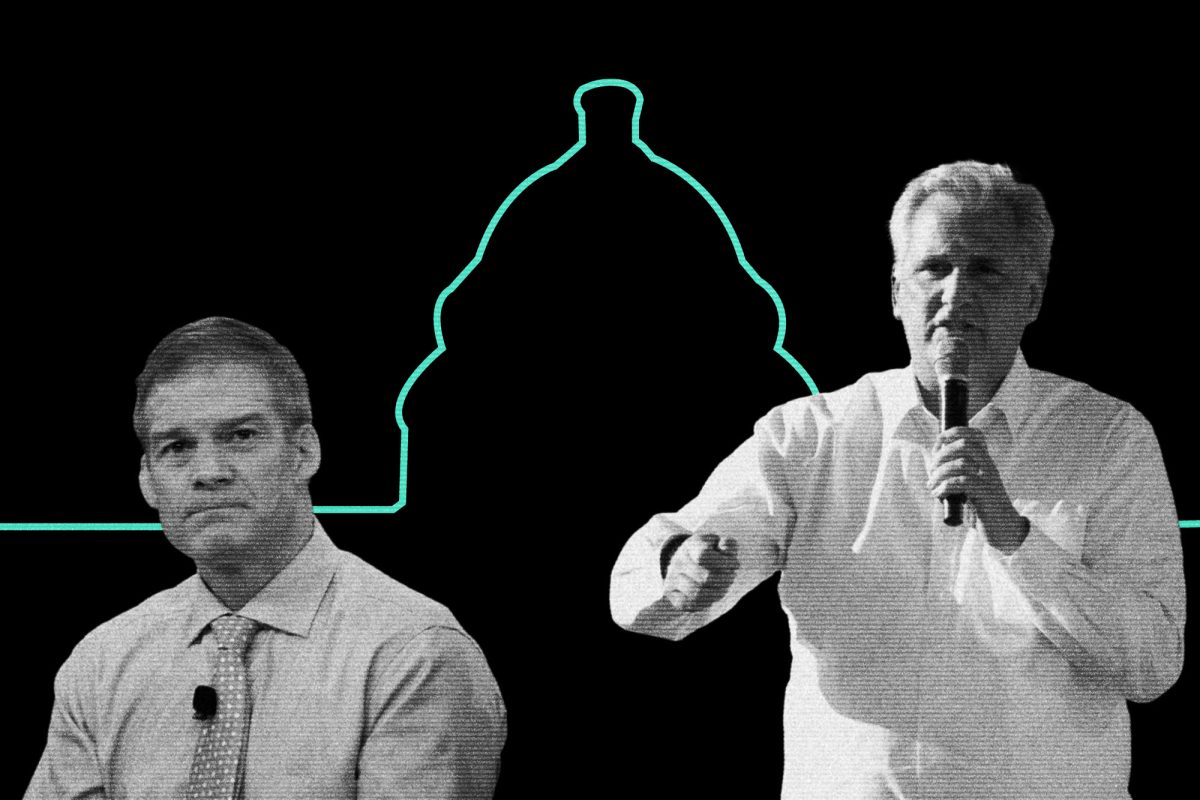The 118th Congress has been characterized by chaos in the House as the slim, fractured Republican majority struggles to elect a Speaker after the ouster of Kevin McCarthy on Oct. 3.
The implications of the impasse are broad.
José Alemán, a professor of political science at Fordham, noted the potential detrimental impacts of a speakerless House.
“For the Fordham community specifically and Americans generally, this is extremely concerning because the House of Representatives, and thus Congress, cannot pass legislation the way they normally would,” he said.
Funding for the war in Ukraine, as well as aid for Israel in its war against Hamas, has intensified the crisis.
“This makes a government shutdown more likely because the House, the Senate, and the President cannot negotiate a compromise that funds the government and is acceptable to all sides.”José Alemán, professor of political science at Fordham
Representative Jim Jordan lost his first bid to become House speaker on Oct. 17, further fracturing the Republican caucus, which is divided between moderate and hard-right factions. Another vote will be held on Oct. 18.
Without a speaker, the House cannot schedule votes on new legislation, including a bill to extend funding for the federal government past Nov. 17. If a spending bill is not signed into law by then, the federal government will shut down.
The passage of a last-minute bipartisan spending bill on Sept. 29 to avert a government shutdown for 45 days led to McCarthy’s ouster. The compromise struck by McCarthy with Democrats is set to expire on Nov. 17.
In the case of a shutdown, non-essential federal employees would be placed on furlough and directed not to come in to work. Essential government employees, such as air traffic controllers and law enforcement, will be required to work without pay until an appropriations bill is passed.
Jacob Smith, assistant professor of political science at Fordham, said the ongoing situation increases the likelihood of a shutdown, “especially if Jim Jordan or another hardliner becomes speaker.”
Jordan, a firebrand conservative from Ohio, fell short of the 217 vote majority needed to become speaker as 20 members of the slim Republican majority voted for other candidates. The scene was reminiscent of when 20 GOP hardliners blocked McCarthy’s bid for the speakership in January, only acquiescing on the 15th ballot after McCarthy agreed to major concessions, including allowing a single representative to motion to oust the speaker.
Without the election of a speaker, the House will continue to be paralyzed and unable to work toward a compromise to fund the government past Nov. 17.
Those concessions, which allowed McCarthy to win the gavel, would ultimately cause him to lose it. After the former speaker crafted the compromise to avert a government shutdown, Rep. Matt Gaetz motioned to oust him. McCarthy became the first House speaker to be removed from the position when Gaetz and seven other Republicans joined all 212 Democrats in voting to vacate the office of speaker.
In his bid for speaker, Jordan enjoyed the support of ultraconservative Republicans in the House Freedom Caucus, which he co-founded in 2014, and the endorsement of former President Donald Trump. However, Jordan needed to convince moderate House Republicans that their interests would be heard after a handful of hard-right Republicans held outsized influence during McCarthy’s speakership.
To reach 217 votes, Jordan needed all but four votes from the Republican caucus, with extraordinary leverage held by holdouts in the GOP’s slim majority. While McCarthy agreed to major concessions to secure the speakership in January, Jordan avoided making specific promises and instead pressured lawmakers by urging conservative voters to call their representatives and demand they vote for Jordan.
The weekend pressure campaign appeared to soften resistance to Jordan’s bid as several moderate lawmakers announced they had decided to vote in his favor, but fell significantly short on Tuesday. Rep. Carlos Gimenez, who voted for McCarthy during Tuesday’s vote, told reporters that Jordan’s attempts to pressure lawmakers had backfired.
“His tactics certainly didn’t work on me, actually I became more centered in my position,” Gimenez said. “He should have probably left me to my own devices to get there.”
Without the election of a speaker, the House will continue to be paralyzed and unable to work toward a compromise to fund the government past Nov. 17.
“This makes a government shutdown more likely because the House, the Senate, and the President cannot negotiate a compromise that funds the government and is acceptable to all sides,” Alemán said.
Stevie Fusco contributed additional reporting to this story.



